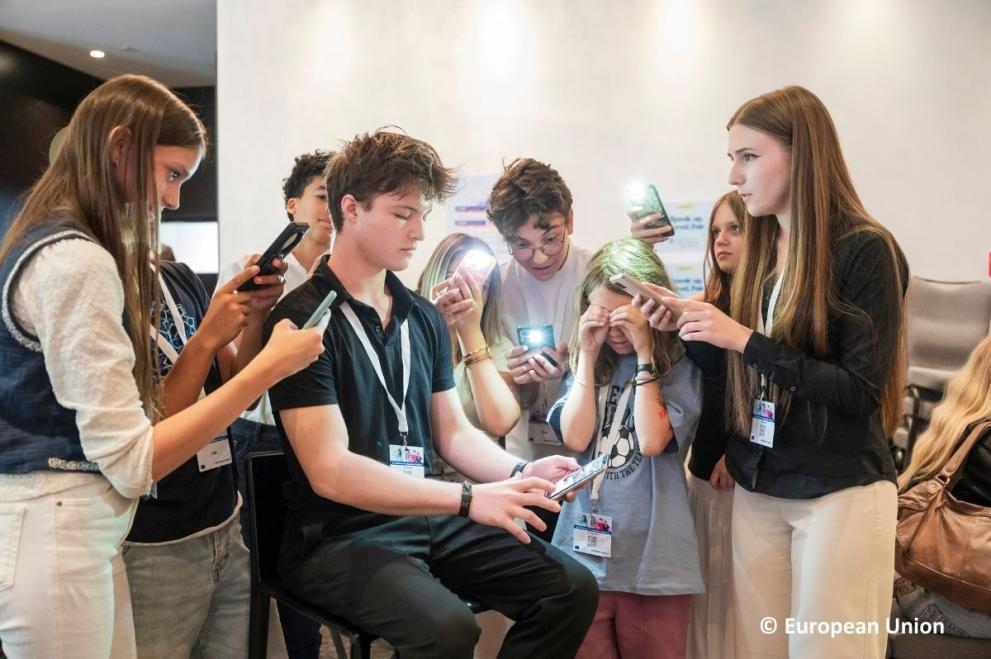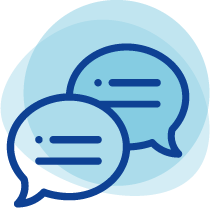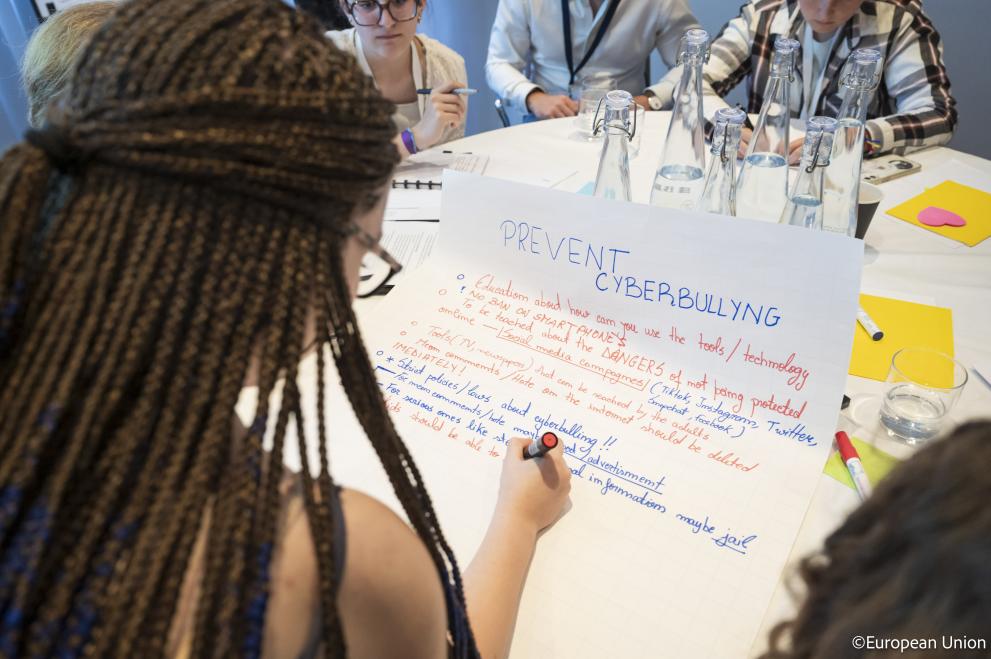The European Union has worked on an Action Plan to help prevent cyberbullying, and better support those children and teens affected by it.
To ensure the Plan responded to children's needs and lived experiences, we asked EU children and teenagers (ages 12-17) for their thoughts and opinions. This was done by an online survey in all EU languages in September 2025.
Who did we hear from?
- 6,343 children and teenagers aged 12-17
- from all 27 EU countries
- 57% girls, 40% boys, 2% other, 2% didn’t say
Children's experience of cyberbullying
- 24% had experienced cyberbullying themselves
- 39% had seen cyberbullying (47% of 17-year-olds, 28% of 12-year-olds)
- 50% knew of someone treated badly online (52% girls, 40% boys)
- 50% felt that people who are ‘different’ are most likely to be cyberbullied
- 70% felt that cyberbullying is done for ‘fun and attention’
- 62% felt that cyberbullying is done to ‘feel powerful’

What did children say?
- How cyberbullying makes children feel
- 73% – sad
- 65% – hurt
- 62% – lonely or left out (70% girls, 52% boys)
- 59% – embarrassed
- Getting help and support if they are cyberbullied
- 62% would go to a parent or carer (67% girls, 56% boys)
- 41% to a friend (46% of 17-year-olds, 29% of 12-year-olds)
- 25% to a teacher or school staff (38% of 12-year-olds, 19% of 17-year-olds)
- 14% to a helpline or support website
- 11% would not tell anyone
- 8% are not sure

More counselling to help both victims and bullies understand what's happening
Key recommendations for action
- Hold social media platforms accountable
- Simplify reporting of cyberbullying
- Strengthen laws against cyberbullying
- Promote awareness, education, and open conversations among parents and children
- Support affected children through counselling
- Foster positive online behaviour, build digital skills, and encourage resilience and respectful environments
- Limit younger children's access to social media

Full report of what children said about cyberbullying
What do children want from adults?
- What social media platforms need to do
- 54% of children want platforms to take reporting seriously and inform on follow-up
- 39% want reporting to be easier on apps or websites
- 39% want platforms to provide support for victims of cyberbullying
- 25% want children to be involved on how to make platforms safe
- 12% want platforms to pay for information campaigns
- What schools and parents need to do
- 56% of children want schools to have clear rules and consequences for cyberbullying (61% girls, 46% boys)
- 54% want students to be taught about cyberbullying in class
- 49% want support, including psychological, for those who have been bullied (58% girls, 36% boys)
- 47% want those who are bullying and their parents to be spoken with
- 45% want to know that something will be done if they report
- 43% want trusted adults/peers to talk to (49% girls, 34% boys)
- 30% said their school has anti-bullying rules/guidelines, 57% did not know, and 13% said they did not
- 45% had participated in something on stopping cyberbullying, 32% had not, and 23% were not sure

Ban people as soon as they post... Platforms need to ban/suspend accounts, IP, IMEI
What happens next?
- Q1 2026
- The European Commission's Action Plan against Cyberbullying was published
- Child-friendly report of the survey results (in all EU languages)
- Feedback on how children's input was used
- Child-friendly versions of the Plan
- The European Commission's Action Plan against Cyberbullying was published
If you need help or support:
- Please visit the Better Internet for Kids website, where you can find learning resources in all EU languages, or contact a Safer Internet Centre in your country to report any online issue or talk to an expert.
- To talk to someone about how you are feeling, please speak to a trusted adult or call a helpline for children in your country.

